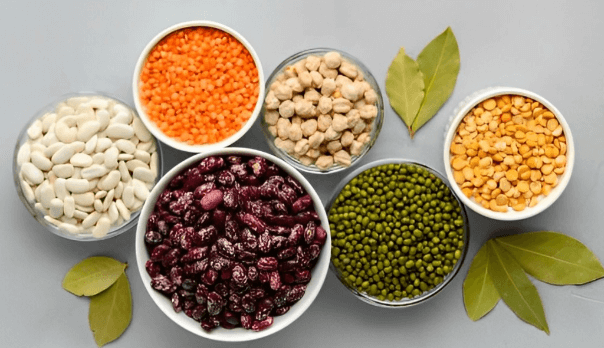wellhealthorganic.com:ayurveda-dinner

Introduction to Ayurveda Dinner
Ayurveda, the ancient Indian system of medicine, emphasizes a holistic approach to health and wellness. One crucial aspect of Ayurveda is diet, and an Ayurveda dinner plays a significant role in maintaining balance and harmony within the body. Understanding how to prepare and enjoy an Ayurveda dinner can improve digestion, enhance well-being, and promote a restful night’s sleep.
Principles of Ayurveda in Dinner Planning
Ayurveda’s dietary principles focus on balancing the body’s three doshas: Vata, Pitta, and Kapha. Each dosha has unique qualities and requires specific foods to maintain balance. By planning an Ayurveda dinner that caters to your dominant dosha, you can ensure that your meal supports your overall health.
Importance of Doshas in Ayurveda
Doshas are the three energies believed to circulate within the body and govern physiological activity. They are Vata (air and space), Pitta (fire and water), and Kapha (earth and water). Understanding your dominant dosha helps in tailoring your diet to support your body’s needs and maintain optimal health.
Types of Doshas and Their Characteristics
- Vata: Associated with movement, creativity, and flexibility. Vata individuals are usually light, energetic, and quick-thinking but may suffer from anxiety and digestive issues.
- Pitta: Linked to metabolism, transformation, and digestion. Pitta types are typically strong, intense, and driven but can be prone to anger and inflammation.
- Kapha: Represents structure, stability, and nurturing. Kapha people are generally calm, steady, and compassionate but may experience weight gain and lethargy.
Balancing Doshas with Diet
Balancing doshas involves consuming foods that counteract any excesses in your dominant dosha. For instance, Vata types benefit from warm, moist, and grounding foods, while Pitta individuals thrive on cooling, soothing foods. Kapha types should focus on light, dry, and warm foods to counterbalance their inherent heaviness.
Foods to Include in an Ayurveda Dinner
For a balanced Ayurveda dinner, include fresh, organic vegetables, whole grains, legumes, and healthy fats. Incorporate a variety of colors and flavors to ensure you’re getting a range of nutrients. Focus on seasonal produce to align with nature’s cycles.
Foods to Avoid in an Ayurveda Dinner
Avoid processed foods, refined sugars, and excessive amounts of meat, as these can disrupt the balance of doshas. Also, steer clear of overly spicy, salty, or fried foods, which can aggravate certain doshas and lead to imbalances.
Seasonal Considerations for Ayurveda Dinner
Ayurveda recommends adjusting your diet according to the seasons to maintain balance. In winter, opt for warming and grounding foods like root vegetables and soups. In summer, choose cooling foods like cucumbers and leafy greens. Spring calls for detoxifying foods like bitter greens, while autumn is ideal for warming spices and hearty grains.
The Role of Spices in Ayurveda Dinner
Spices are vital in Ayurveda for their medicinal properties and ability to enhance digestion. Common Ayurvedic spices include turmeric, ginger, cumin, coriander, and fennel. Each spice has unique benefits, such as anti-inflammatory properties or digestive aid, making them essential for a balanced meal.
Ayurvedic Recipes for Dinner
Ayurvedic recipes focus on balance, simplicity, and the use of fresh ingredients. They often include a variety of vegetables, legumes, grains, and spices tailored to your dosha. Here are some recipe ideas to get you started.
Simple Ayurveda Dinner Recipes
- Kitchari: A traditional Ayurvedic dish made with mung beans, rice, and spices, perfect for balancing all doshas.
- Vegetable Stew: A hearty stew with seasonal vegetables, lentils, and warming spices, ideal for Vata and Kapha types.
- Quinoa Salad: A light, cooling salad with quinoa, fresh herbs, and a variety of vegetables, suitable for Pitta types.
Read also wellhealthorganic.com/health-benefits-of-turmeric-tea
Detoxifying Ayurveda Dinner Recipes
- Green Detox Soup: A nourishing soup with leafy greens, herbs, and spices to support detoxification and digestion.
- Lentil and Spinach Curry: A protein-rich curry with detoxifying spinach and lentils, spiced with turmeric and cumin.
- Beetroot Salad: A refreshing salad with beetroots, lemon juice, and fresh herbs to aid in detoxification.
Energizing Ayurveda Dinner Recipes
- Spiced Chickpea Bowl: A bowl of chickpeas cooked with energizing spices, vegetables, and a sprinkle of fresh cilantro.
- Sweet Potato and Kale Stir-Fry: A vibrant stir-fry with sweet potatoes, kale, and ginger, perfect for boosting energy levels.
- Millet Pilaf: A nourishing pilaf with millet, vegetables, and invigorating spices like cardamom and cinnamon.
Calming Ayurveda Dinner Recipes
- Turmeric Rice: A soothing rice dish with turmeric, ghee, and mild spices, ideal for calming the mind and body.
- Mung Bean Soup: A gentle, nourishing soup with mung beans, mild spices, and fresh herbs to promote relaxation.
- Stewed Apples: Warm stewed apples with cinnamon and a touch of honey, perfect for a calming dessert.
Importance of Freshness and Quality of Ingredients
In Ayurveda, the quality and freshness of ingredients are paramount. Fresh, organic, and locally sourced foods are believed to carry more prana (life force), which contributes to better health and vitality. Always choose high-quality ingredients for your Ayurveda dinner.
Read also wellhealthorganic.com/easily-remove-dark-spots-lemon-juice
Cooking Methods in Ayurveda
Ayurvedic cooking methods focus on preserving the nutrients and prana in food. Common methods include steaming, boiling, and slow-cooking. Avoid microwaving and deep-frying, as these methods can diminish the food’s nutritional value and prana.
The Concept of Agni in Ayurveda
Agni, or digestive fire, is a central concept in Ayurveda. A strong agni is essential for good digestion, absorption, and assimilation of nutrients. Eating an Ayurveda dinner that supports agni can help improve overall health and prevent digestive issues.
How to Improve Digestion with Ayurveda Dinner
To support digestion, include ginger, cumin, and fennel in your meals. Eating in a calm environment, chewing food thoroughly, and avoiding overeating are also important. Drink warm water or herbal teas with your meal to aid digestion.
The Benefits of a Well-Planned Ayurveda Dinner
A well-planned Ayurveda dinner can improve digestion, enhance sleep quality, boost energy levels, and support overall health. By eating in accordance with your dosha and seasonal guidelines, you can maintain balance and harmony within your body.
Tips for Preparing an Ayurveda Dinner
Plan your meals ahead, focusing on fresh, seasonal ingredients. Use a variety of spices to enhance flavor and digestion. Cook mindfully, paying attention to the process and infusing your food with positive energy.
The Role of Mindfulness in Eating
Mindful eating is a key component of Ayurveda. Eat slowly, savor each bite, and focus on the sensory experience of your meal. This practice can improve digestion, enhance satisfaction, and prevent overeating.
Creating a Calm Dining Environment
Create a peaceful dining environment by minimizing distractions, such as television or loud music. Set the table nicely, use soothing colors and lighting, and take a few deep breaths before eating to center yourself.
Ayurveda Dinner for Different Age Groups
Ayurveda recognizes the different nutritional needs of various age groups. Children require more building foods, such as dairy and grains. Adults need balanced meals to maintain energy and vitality, while the elderly benefit from lighter, easily digestible foods.
Ayurveda Dinner for Specific Health Conditions
Tailor your Ayurveda dinner to address specific health conditions. For instance, individuals with diabetes should focus on low-glycemic foods, while those with hypertension may benefit from a low-sodium diet. Always consult with an Ayurvedic practitioner for personalized advice.
Ayurveda Dinner for Weight Management
For weight management, focus on light, nourishing foods that balance your dosha. Include plenty of vegetables, lean proteins, and whole grains. Avoid heavy, oily, and sugary foods that can lead to weight gain.
The Importance of Hydration in Ayurveda Dinner
Proper hydration is essential in Ayurveda. Drink warm water or herbal teas throughout the day and with your meals. Avoid cold beverages, as they can dampen agni and hinder digestion.
Combining Ayurveda Dinner with Yoga
Combining an Ayurveda dinner with a regular yoga practice can enhance overall well-being. Yoga helps to balance doshas, improve digestion, and promote relaxation, making it a perfect complement to an Ayurvedic lifestyle.




